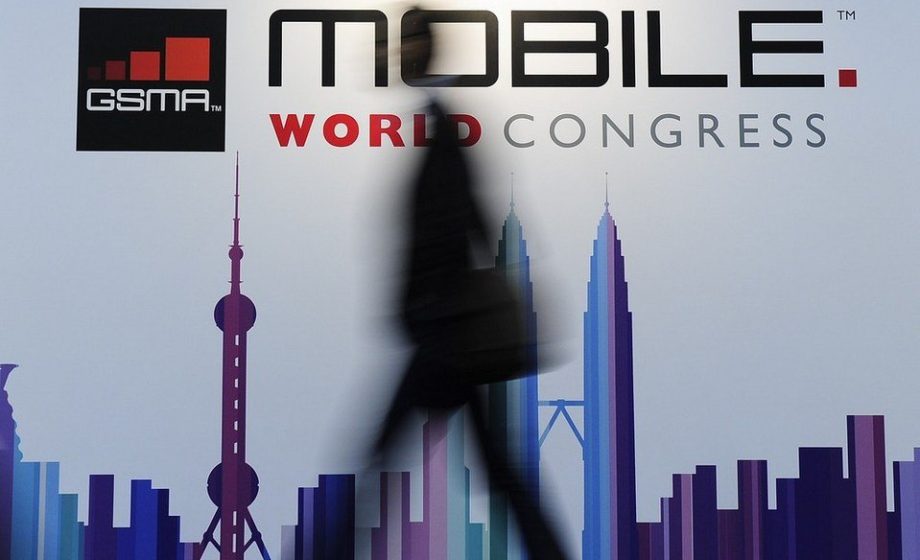 The second frenzied day of Mobile World Congress got underway yesterday. Having spent the day shuttling between the main MWC event and the startup focused 4YFN underscored how much MWC has evolved in recent years. Here were my big highlights from day 2:
The second frenzied day of Mobile World Congress got underway yesterday. Having spent the day shuttling between the main MWC event and the startup focused 4YFN underscored how much MWC has evolved in recent years. Here were my big highlights from day 2:
Startups have found a home at MWC
For the first time this year, there are dedicated events for startuppers. In addition to a couple of Hackathons, the most prominent startup-focused event of the week is ‘Four Years from Now’ (4YFN), which welcomed over 1000 attendees from the global mobile startup ecosystem to discuss, debate, learn and network. Needless to say this was a positive development. It’s evident that pretty much everyone one in the traditional telco/mobile ecosystem have come to realize the massive potential that startups offer. It seemed like most everyone from the global mobile startup world enthusiastically jumped on-board in one way or another for the first edition including, tech darlings such as Airbnb and WhatsApp, communications stalwarths such as Qualcomm, global accelerators such as TechStars, Seedcamp, and rising mobile accelerator Momentum, VCs and angels, corporate venture funds such as Intel Ventures and Unilever Ventures and, of course, loaders of startup founders themselves.
What 4YFN has done is offer the startup community a truly top quality, relevant and affordable event during MWC week just for them. The irony is that program may actually be too good as there have been so many interesting talks, pitch sessions/startup competitions, investor-founder network sessions, and workshops, that it’s actually quite difficult to choose which one to go to.
WhatsApp is adding voice but staying the same
After speaking giving a keynote at MWC on Monday, Jan Koum was the biggest draw today at 4YFN. Hot on the heels of Monday’s announcement that WhatsApp would soon be adding voice, Koum elaborated on how they plan to bring innovation to voice. Namely that while he feels it’s hard to bring innovation to voice, they hope to add-value for users by adding voice capability that adapts to the level of connectivity in the area where the user is located.
Of course, he also spoke about the Facebook acquisition and reinforced that WhatsApp would continue to operate autonomously, would not be integrated into Facebook, and would continue to take a minimalistic approach to ensure that WhatsApp continues to deliver a fast, reliable and lightweight service. Only time will tell, of course, if he’ll be able to stay the course.
Pintrest – A great example of the changing face of mobile
I had the opportunity to catch-up with Gene Alston, Pinterest’s Head of Business Development. In addition to retaining and growing their core audience (ie women) and bringing more men to their platform, international is top of the agenda for them. They’ve already had a lot of momentum internationally having grown their international user base +125% last year by expanding in to various new markets including France, which was reinforced with the hire of Stephanie Tramcheck as country manager. With Pinterest available now in 22 languages, they plan to keep up their pace of growth, expanding to 38 languages by the end of this year.
While international as well as existing and new user-growth is such a strong priorities for them, it’s clear that mobile is going to be at the heart of achieving these objectives. Although many existing users first discovered Pinterest originally on their PCs or Macs, approximately 75% of Pinterest’s US traffic is now coming from mobile and, according to ComScore, 47% of users are mobile only. It’s not hard to imagine that Pinterest will soon firmly be a mobile content discovery platform as they expand into eastward and into emerging markets where mobile is even more dominant.
More Orange Announcements – Handsets and the Internet of Things
While the French press and others heavily covered the talks between Microsoft and Orange about Microsoft’s taking a stake in Dailymotion, Orange continued to make waves at MWC. In addition to the Mobile Connect announcement, they also announced that they would be continuing with their strategy of launching Orange-branded devices, which thanks to their launch of 13 of these devices in 2013, grew sales of own-branded handsets by 40%. This time though they’ll be launching 2 new smartphones with the objective of driving 4G uptake. The two devices, named the Orange Gova and The Orange Reyo, are manufactured by Huawei and already available in limited markets would be rolled-out more broadly shortly. The phones also include Orange updates software which aims to make it easier for adults who are less tech savvy to access and use apps.
The second and perhaps most interesting news is that they’ll be launching an offer to support Internet of Things focused startups. The objective is to enable these startups to accelerate their development and bring their products to market. The main parts of the offer will include:
- Opening up Orange’s online distribution channels in France, their 19 European markets and South Africa
- Assistance for startups looking to industrialize their connected object prototypes through relationship building support with global manufacturers.
- Support developing the optimal ground presence in order to facilitate rapid distribution across a large number of European countries.
- Access to various communication modules to be associated with the object.
Given the well-known funding challenges faced by hardware startups, it’s encouraging that Orange is taking this on. Of course it will have a big benefit for them as well, but it’s certainly a step in the right direction.

